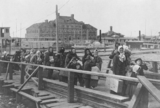
In this lesson, students will learn about audience appeal and analyze how Jefferson chose his arguments and his language to appeal to his particular audience.
- Subject:
- English Language Arts
- Material Type:
- Lesson Plan
- Date Added:
- 09/21/2015

In this lesson, students will learn about audience appeal and analyze how Jefferson chose his arguments and his language to appeal to his particular audience.
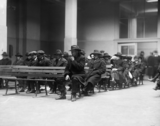
In this lesson, students will participate in a Benchmark Assessment (Cold Write). The Benchmark Assessment (Cold Write) is an unassisted and unrevised piece of writing with the purpose of providing a quick gauge of the student’s mastery of the characteristics of a given genre. Today’s Benchmark Assessment (Cold Write) measures and provides a benchmark of students’ mastery of narrative writing.Students will also think more about the role of government: what should absolutely never be tolerated by citizens? What “dream” did the colonists have as they first decided to break away from England? They’ll read and analyze the Declaration of Independence to answer these questions.
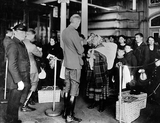
In this lesson, students will think about what rights the Founders felt that the government should guarantee to its citizens. They'll read and analyze the Bill of Rights, the first 10 amendments to the Constitution.

In this lesson, you will begin to think about the idea of the American Dream, and you'll learn about the project and requirements for this unit.In this lesson, students will begin to think about the idea of the American Dream, and they'll learn about the project and requirements for this unit.
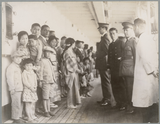
What is the best way to convince people that you are right? In this lesson, students will look at the structure of the Declaration of Independence, examining how the argument is constructed.

In this lesson, students will meet with their Independent Reading Group to discuss the reading so far.
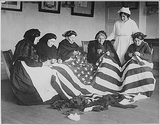
In this lesson, students will contribute to a conversation about what makes a good discussion and discuss with their classmates the ideas in the historical documents they have read so far.
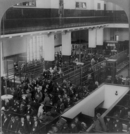
In this lesson, students will go back to the documents they've read, looking through them closely to figure out what the Founders might have said was the “American Dream.”
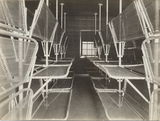
In this lesson, you will consider what the Founders of the United States government might have described as the “American Dream.” You'll analyze the Preamble to the Constitution, deciding what the writers “dreamed” the role of government and the rights of citizens to be.

In this lesson, students will explore the uses of the digital course in the classroom and consider how it will help them as learners this year.

In this 5-day unit, students will explore the topic of cheating. Cheating seems to be ever-present in today’s society. Whether we are talking about athletes being busted for using steroids or students “sharing” answers and plagiarizing on final exams, one thing is clear—there’s a whole lot of cheating going on. In this unit, students will take a look at some contemporary instances of cheating and argue whether under certain situations cheating is not only excusable, but also justifiable.

In this lesson, you will take the first of two culminating assessments for this unit. You’ll read new material and answer questions that reflect your reading comprehension.Over the next two lessons, students will complete the culminating assessment for this unit.In this lesson, students will read text and answer questions that reflect their reading comprehension. Some questions will ask students to select from a group of answers supplied. Other questions will ask students to construct their own answers and write them in the space provided.

In this lesson, students will share annotations and discuss the articles “Don’t Alter Models’ Bodies” and “Is Photoshop Destroying America’s Body Image?” Then they will write an argument in which they state their claim, present relevant evidence, and respond to counterarguments.

In this lesson, you will take the writing portion of the culminating assessment. You will continue to use the skills you have learned in the first three lessons of this unit.Today, students will take the writing portion of the culminating assessment.They will reflect on all the material they have read in this unit, and they will use their understanding of all the material presented to them to write an essay. You will evaluate their work in both reading comprehension and writing.

In this lesson, students will take a survey on cheating and discuss it with the class. Then they will read and annotate “Stuyvesant Students Describe the How and the Why of Cheating,” noting the claims, counterclaims, reasons, and evidence in the article.

In this lesson, students will revisit the articles on cheating that they have read so far. Then they will create metaphors, similes, and skits based on the concept of cheating.

This unit uses William Shakespeare’s Much Ado About Nothing as a vehicle to help students consider how a person is powerless in the face of rumor and how reputations can alter lives, both for good and for ill. They will consider comedy and what makes us laugh. They will see how the standards of beauty and societal views toward women have changed since the Elizabethan Age and reflect on reasons for those changes. As students consider the play, they will write on the passages that inspire and plague them and on topics relating to one of the themes in the play. Finally, they will bring Shakespeare’s words to life in individual performances and in group scene presentations.
ACCOMPLISHMENTS
Students read Shakespeare’s Much Ado About Nothing .
Students read two Shakespearean sonnets and excerpts from an Elizabethan morality handbook dealing with types of women, and they respond to them from several different perspectives.
For each work of literature, students do some writing. They learn to write a sonnet; create a Prompt Book; complete a Dialectical Journal; and write an analytical essay about a topic relating to a theme in the play.
Students see Shakespeare’s play as it was intended to be seen: in a performance. They memorize 15 or more lines from the play and perform them for the class. Students take part in a short scene as either a director or an actor.
GUIDING QUESTIONS
These questions are a guide to stimulate thinking, discussion, and writing on the themes and ideas in the unit. For complete and thoughtful answers and for meaningful discussions, students must use evidence based on careful reading of the texts.
What are society’s expectations with regard to gender roles?
Does humor transcend time? Do we share the same sense of humor as our ancestors?
How do we judge people?
How important is reputation?
BENCHMARK ASSESSMENT (Cold Read)
During this unit, on a day of your choosing, we recommend you administer a Cold Read to assess students’ reading comprehension. For this assessment, students read a text they have never seen before and then respond to multiple-choice and constructed-response questions. The assessment is not included in this course materials.
CLASSROOM FILMS
The Branagh version of Much Ado About Nothing is available on DVD through Netflix and for streaming through Amazon. Other versions are also available on both sites.

In this lesson, students will revise the final couplet of their sonnet, learn more about the characters in Much Ado About Nothing, and begin their Dialectical Journal. Finally, they will use their developing understanding of iambic pentameter to analyze Shakespeare’s language choices.
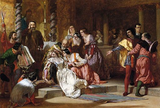
In this lesson, students will finish Much Ado About Nothing and see whether their predictions for how things end are correct. They will also complete their Character Chart and weigh in on what they think the topic and the theme of the play are.
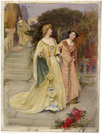
In this lesson, students will come to see how the concept of deception can be looked at in more than one way and how this factors into Much Ado About Nothing ’s character development.